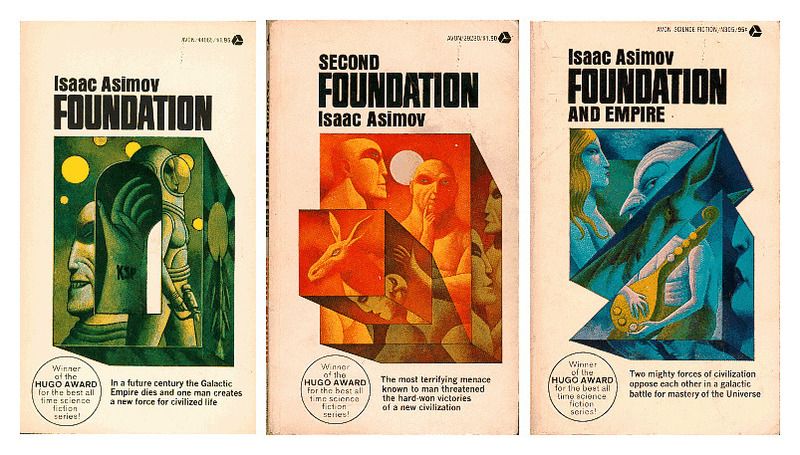 The infinite stair from Zork III! Extreme daddy issues! Maximum offense for all squares everywhere! Dudes in distress and the women who solve physics problems to save them! Marriage and male privilege in a post-scarcity future!
The infinite stair from Zork III! Extreme daddy issues! Maximum offense for all squares everywhere! Dudes in distress and the women who solve physics problems to save them! Marriage and male privilege in a post-scarcity future!
Yes, friends, it’s time to take a look at the short fiction of today’s science fiction and fantasy scene. No matter who you are or what you’re into, there’s something here to make your head explode. But not always in a good way….
—
The Meeting of Infinite Stairs by Christopher Alan
Sci Phi Journal
January 4, 2016
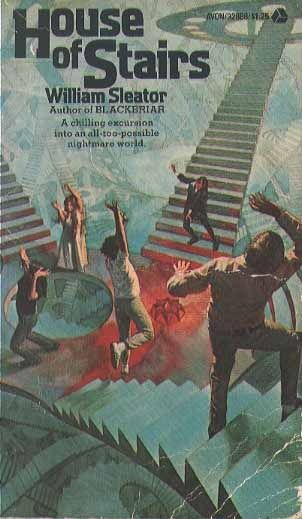 The premise for this one is pretty good; in fact it was the basis of one of my favorite novels from when I was a kid. But unlike William Sleator’s House of Stairs, this story doesn’t have anything remotely like romantic tension, fist fights, or moral dilemmas. This is Sci Phi Journal here, not Planet Stories, so it ends up being closer to a “Tortoise and Achilles” type dialog that explores the impossibility of objective knowledge and deconstructionist objections. (I know that because the “food for thought” section at the end helpfully clued me in to what I just read! Seriously, that bit was my only hope for “getting” it.) So… there’s no Space Princess here and no exploding space ships. But… there’s also no heavy handed “progressive” stuff, either. Given the way the rest of these stories turned out, that puts Sci Phi ahead of the game.
The premise for this one is pretty good; in fact it was the basis of one of my favorite novels from when I was a kid. But unlike William Sleator’s House of Stairs, this story doesn’t have anything remotely like romantic tension, fist fights, or moral dilemmas. This is Sci Phi Journal here, not Planet Stories, so it ends up being closer to a “Tortoise and Achilles” type dialog that explores the impossibility of objective knowledge and deconstructionist objections. (I know that because the “food for thought” section at the end helpfully clued me in to what I just read! Seriously, that bit was my only hope for “getting” it.) So… there’s no Space Princess here and no exploding space ships. But… there’s also no heavy handed “progressive” stuff, either. Given the way the rest of these stories turned out, that puts Sci Phi ahead of the game.
—
Longsleeves by Mike Allen
Beneath Ceaseless Skies
January 7, 2016
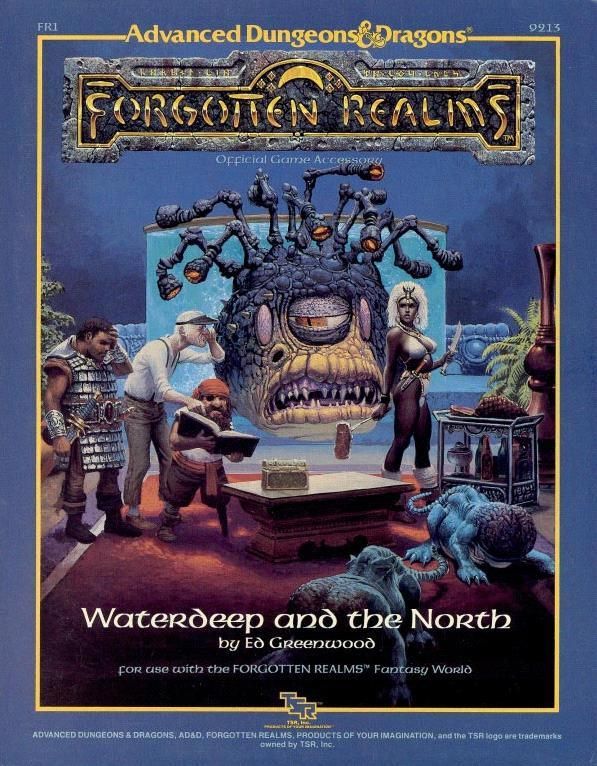 Coming off a year-long survey of pulp fantasy, reading this story engendered no small amount of culture shock for me. While the old stories are loaded with their share of damsels in distress, this one features a female protagonist that is subjected to a shocking level of brutality in the opening paragraphs. And though the lack of any sort of connection to real world history and myth didn’t appear to slow things down when a witch’s healing spell had a side effect of turning a person into an anthropomorphic animal with extensive disadvantages like “blood-lust” and “bad temper”, the addition of a Tardis-like tree-house struck me as being more in line with a really bad late eighties Dungeon™ adventure than anything else. The generic “high fantasy” tone that infuses the dialog is downright tedious, though.
Coming off a year-long survey of pulp fantasy, reading this story engendered no small amount of culture shock for me. While the old stories are loaded with their share of damsels in distress, this one features a female protagonist that is subjected to a shocking level of brutality in the opening paragraphs. And though the lack of any sort of connection to real world history and myth didn’t appear to slow things down when a witch’s healing spell had a side effect of turning a person into an anthropomorphic animal with extensive disadvantages like “blood-lust” and “bad temper”, the addition of a Tardis-like tree-house struck me as being more in line with a really bad late eighties Dungeon™ adventure than anything else. The generic “high fantasy” tone that infuses the dialog is downright tedious, though.
A strong enough story could make my criticisms of the style far less of an issue. And there’s plenty here to make a story: action, characters, mystery…. But there’s a twist here that makes this whole thing kind of sick:
The rage her father so often inspired, that spurred her to call him coward and monster, reared its head. In retaliation for that rage, her father had more than once pinned her down and beat her, careful not to leave visible bruises—but that never stopped her.
You know, child abuse is not the first thing that comes to mind when people ask me about great fantasy stories. But any sympathy I might have had for this character disappeared when she sassed and rebelled against the person that not only saved her life, but also held her completely in her power. That the conclusion could combine this with all the various plot threads and take them to an audacious conclusion is impressive. I just can’t imagine what sort of person could be in the target audience for a fairy tale with a moral of “kill all men”. Whoever they are, I hope they get help.
—
The Virgin Played Bass by Maria Dahvana Headley
Uncanny
January, 2016
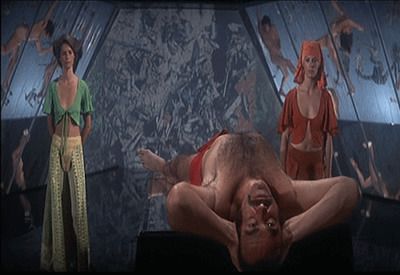 This is nonsense. Not that there isn’t some nonsense that is objectively better than other nonsense. (The They Might Be Giants Song “Bee of the Bird of the Moth” is inferior to their strangely iconic “Particle Man”, for instance.) At any rate, “The Virgin Played Bass” is of the less good variety. Though its lilt is occasionally reminiscent of the Joseph Heller’s snappy irreverence in Catch-22, this piece is more along the lines of a twisted parallel universe extended cut of “If You Were a Dinosaur My Love”. If you were thrilled by the latter, you’ll want to brew up a pot of coffee and disconnect the phone for this.
This is nonsense. Not that there isn’t some nonsense that is objectively better than other nonsense. (The They Might Be Giants Song “Bee of the Bird of the Moth” is inferior to their strangely iconic “Particle Man”, for instance.) At any rate, “The Virgin Played Bass” is of the less good variety. Though its lilt is occasionally reminiscent of the Joseph Heller’s snappy irreverence in Catch-22, this piece is more along the lines of a twisted parallel universe extended cut of “If You Were a Dinosaur My Love”. If you were thrilled by the latter, you’ll want to brew up a pot of coffee and disconnect the phone for this.
I admit I am perplexed by this remixing of the Easter story with twelve “f” words and a smattering of explicitly described sex, though. (That’s right. The virgin from the title is the Virgin… who is fortunately not depicted hitching up her skirts. It’s Mary Magdalene that gets that gig here.) You know… after all the lectures I’ve received on making various geeky activities as inclusive possible it’s kind of surprising to see someone go out of their way to offend a fairly large group of people in this manner. It happens, sure. I mean… it’s no different than any senior art thesis I’ve ever seen, really. So on a certain level, this story is completely normal and commonplace. This is what people do in order to fit in. But I do wonder sometimes if there is even any Bourgeoisie left that can even be offended by this type of stuff anymore.
The thing that really gets me is the fact that this story is featured in a magazine that bills itself as providing science fiction and fantasy. That’s the real shocker here: that Uncanny is passing this off as science fiction or fantasy. You know, that in and of itself is more offensive than anything in the story itself. But I guess that’s sort of a feat in and of itself!
—
 Holy moley! Real, honest to goodness science fiction! I’m in shock!
Holy moley! Real, honest to goodness science fiction! I’m in shock!
First, the good news. If you are looking for solid depictions of space with a strong engineering and problem solving focus, then this is it. Really, if you’ve been wondering if written science fiction in the same vein as 2001 and Gravity was even being done anymore, it’s right here. This is an absolutely fantastic depiction of what construction work in orbit would actually be like, right down to the culture that would emerge among the EVA suit operators and their foremen.
The bad news is that the story goes off the rails in a pursuit of the checklist mentality that seems to have consumed practically everything of late. Sure, it’s not a new thing to have the cute girl character be really awesome at math and come up with the critical solution to the story’s big crisis. Setting up everything to culminate into a big reveal of our brainiac’s “lovely caramel skin” is kind of insulting, though. I mean, what…? Can the readers of this stuff be assumed to be so racist that they can only be tricked into reading a story with a non-white character…?! Please.
It’s a shame, really. The drama inherent in this accident at a space construction site is positively gripping. But the attempt at a romantic element here is completely out of place and more like something that could happen at a seventh grade gifted and talented program than anything that consenting adults might entertain.
—
The Algorithms of Value by Robert Reed
Clarkesworld
January, 2016
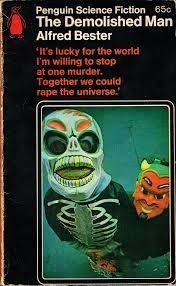 This story explores what it would be like to live in a future where everyone owns a holodeck and maybe even something along the lines of a replicator. But in this future society in which everything has been fundamentally transformed by technology, the institution of marriage somehow endures. And though our smart, thoughtful female protagonist has made some sort of contribution to the artificial intelligence programming that makes this future world possible, she has unfortunately married a real creep:
This story explores what it would be like to live in a future where everyone owns a holodeck and maybe even something along the lines of a replicator. But in this future society in which everything has been fundamentally transformed by technology, the institution of marriage somehow endures. And though our smart, thoughtful female protagonist has made some sort of contribution to the artificial intelligence programming that makes this future world possible, she has unfortunately married a real creep:
He inherited his cash and old-style stocks, and that was long before a pretty golden girl graduated from grade school. He was one of the old masters of a corporation responsible for the best AIs anywhere. An occasional charmer, he had a habit of stalking the pretty girls, like Parchment, and she knew that full well and married him regardless. Nobody else offered a faster route to success….
I’m not entirely sure, but I gather we’re supposed to feel sympathy for this character because she in this depressing and unfulfilling relationship. It happens I guess. And it really does sound downright miserable. But why would we feel sorry for her if she got involved with this guy if she married him just to leverage his status and resources in order to achieve some unspecified end that had nothing to do with true love? The likely response from anyone with a shred of common sense would be, “you made your bed… now lie in it!”
In order to make the point that this guy is really unsavory, he is depicted as using two “f” words and two “s” words. Utterly despicable, right? But there’s more reason to hate this guy than just his potty mouth:
Beginning life male and at a respectable height, he had managed to rise quite a bit higher. But his wife was born at the bottom, and not only did she match his achievements, but she eventually supplanted him.
Okay, now this makes my head hurt. Is the author writing about the future now, or the present? If he thinks that male privilege actually works like this today, it doesn’t bother me. Lots of people believe that. But why would things work that way in a future that has been so completely transformed by advanced artificial intelligence…? It’s almost as if he’s saying that no matter how much things change, women will still have to marry well in order to have any influence on anything of any significance.
Is that progressive or retrograde? You know, I’m not sure. But if you are so hard core on being the former that you end up being the latter, then I think it’s probably time to reassess. I have to say, though, I like far future space-Feudalism as much as anybody. And I think it’d be interesting to sort out just how advanced technology could cause venerable human institutions to re-emerge in surprising ways. But this story is positively incoherent.
Clearly I need to learn Freudian psychoanalysis if I’m going to enjoy the new SF/F.
Oh, hey! Sleater was still a pretty big thing when I was a little kid. His stuff was filling bookstore spinners at least until the early 90s. As in, he had his own spinners.
The one book of his I read was pretty cool. Hipsters playing sci-fi board games were actually aliens come to meet up for a galactic throw-down. Be careful who you game with!
It is difficult to wrap my head around what SFF has become. It has been discussed here and elsewhere but it still amazes me.
Let’s see how briefly I can sketch this out.
Pulps – cheap printing, affordable for the masses, stories unbound by genre expectations crowd the shelves along with westerns, crime, etc…
Campbellian Era – WW2, TV, rising wages and living conditions, post war boom. Campbell brings the genre up a few notches. It came with a little cost, here is where I think the pulps started to get a bad name.
The Malaise: By the time we get to the 70’s, TV and film are solidifying their claim on consumer’s limited time, especially the young. Another generation gap separates the Campbellians and their skinny ties with new wave freeky deeky authors like Moorcock. The pessimism of the time calls for an antidote and reprints of Howard fit the bill, spurring the sword and sorcery revival, now codified into its own subgenre. Then Star Wars hits, and SFF draws in tons of new fans who have a vast canon to rediscover.
Reagan’s Mall: There is a lot of money out there and people are having a good time, oblivious to what will come. Between reprints and new authors fans have a lot to chose from. New patterns of consumption, the mall and the chain store, make their mark. The door stopper comes in vogue, as much as trend as a new scheme by publishers to get readers on the hook for multiple volumes. I think the magazines rebounded a bit during this period, right? But home video is becoming a thing, and video games are on the rise.
Post Modern Post Apocalypse: Now here we get to a classic chicken and egg scenario. We know that video and video games are out swinging and people like new things. So there is less money, less profit, less interest in magazines, while the book scene is narrowing, less choice, more thick.
Somewhere around here there is a switch and the push and pull is difficult to parse out. You have editors who choose works based on politics, stories become vehicles for progressive thought. So are they sifting through the wreckage, come on the scene of the ruins of the past? Or did they contribute to the exodus? There is a natural ebb and flow with things and people generally want new stuff. But how did we get to the point where a survey of short fiction on tap at this moment reveals the above? The Baen story is meat and potatoes with some Benneton ad thrown in annoyingly. The Sci Phi story is not really part of the question, a type of SFF that is built from the ground up to explore an idea. But everything else, yipes. How did it come to this? No money in it, so the literary types swoop in, redefining success with awards and prominence in the scene?
And I am not married to any of the analysis above. If I am missing something I would love to hear it.
Hey Jeffro,
I’ll see what I can do about getting more space princesses and fisticuffs for you.
Sci Phi Journal is always going to lean a bit abstract I think but I will see what I can do.
Jason